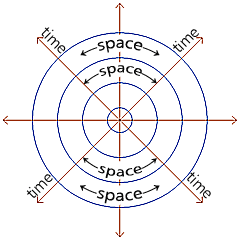You wrote this:
The use of terms such as "Intuition", "Philosophy", and "Faith" imply direct opposition to scientific principle and are thus incompatible with a fact based reality.
You seem to include philosophy here as a term in direct opposition to scientific principle and therefore facted based reality.
As for the claim you think scientific knowledge is the only valid form of knowledge, well, I admit I took this as what you were implying, and you didn't explicitly state it. However, I think the inference is valid. You seemed to say philosophy was not an acceptable form of knowledge (though now you are saying you don't believe that) and you made linked scientific principles with fact based reality as such, whilst only referring to science as a valid form of knowledge.
im·pli·ca·tion
/ˌimpliˈkāSHən/
noun
noun: implication; plural noun: implications
1.
the conclusion that can be drawn from something, although it is not explicitly stated.
"the implication is that no one person at the bank is responsible"
synonyms: suggestion, insinuation, innuendo, hint, intimation, imputation More
"he was smarting at their implication"
•a likely consequence of something.
"a victory that had important political implications"
synonyms: consequence, result, ramification, repercussion, reverberation, effect, significance More
"important political implications"
2.
the action or state of being involved in something.
im·ply
/imˈplī/
verb
verb: imply; 3rd person present: implies; past tense: implied; past participle: implied; gerund or present participle: implying
1.
strongly suggest the truth or existence of (something not expressly stated).
What you consider valid is opinion and incorrect.

